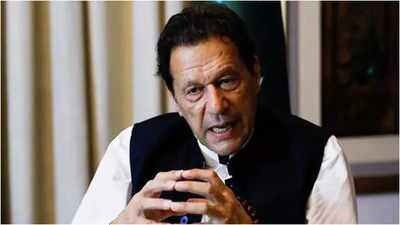Khan’s journey is one of unyielding defiance. Ousted in April 2022 via a no-confidence vote, he faced over 180 legal cases, from corruption to leaking state secrets, resulting in a 31-year sentence (Wikipedia, Imran Khan, 2025). His party’s electoral symbol was banned, its leaders harassed or exiled, and its supporters silenced through media blackouts and internet shutdowns. Yet, the February 2024 elections exposed vulnerabilities in the military’s dominance. PTI-backed independents secured 93 of 264 National Assembly seats, outperforming the military-favored Pakistan Muslim League-Nawaz (PML-N) and Pakistan People’s Party (PPP) coalition (House of Commons Library, Pakistan: 2024 General Election, 2024). This was a bold rejection of the establishment, driven by Khan’s charisma, particularly among Pakistan’s 45% youth electorate (2024 Pakistani General Election). From Rawalpindi’s Adiala jail, Khan penned articles for global outlets like The Economist, while PTI’s social media campaigns, including AI-generated speeches, bypassed censorship to keep his voice alive. A young Rawalpindi student told me, “Imran fights for us, not just for power.
Khan’s revival is both inspiring and risky. Unlike the dynastic PML-N and PPP, PTI challenges Pakistan’s entrenched elite, promoting a “Naya Pakistan” rooted in egalitarian ideals. Initiatives like the Sehat Sahulat healthcare program and the 10 Billion Tree Tsunami earned praise for addressing social welfare and climate issues. Columnist has lauded Khan’s rare courage in confronting the military’s unchecked power, a potential spark for democratic reform (Atlantic Council, 2024). Yet, his unyielding stance, evident in his 2022 clash with General Qamar Javed Bajwa over the ISI chief appointment, led to his ousting . The May 2023 riots, triggered by his arrest, saw PTI supporters attack military installations—a taboo in Pakistan—prompting a harsh crackdown (TIME, Pakistan’s Military Couldn’t Keep Imran Khan Down, 2024). Analysts warn that further unrest could invite another military coup, a recurring threat in Pakistan’s history. Khan’s economic record, with 11.5% inflation and a 30% rupee devaluation by 2021, also raises doubts about his ability to tackle today’s 23% inflation and $100 billion debt crisis.
As elections loom, the political chessboard is tense. The PML-N and PPP coalition, led by Shehbaz Sharif, holds power but faces public anger over economic struggles and allegations of 2024 vote-rigging. Social media posts on X, like those from @deepdownanlyz, highlight Khan’s traction on issues like water scarcity. The military’s influence persists, with the 26th Amendment curbing judicial independence to target PTI . PTI’s tech-driven momentum must navigate legal and military pressures. The coalition’s IMF bailout talks, requiring painful tax hikes, could further erode its legitimacy, bolstering PTI’s prospects. Yet, without a détente with the military, Khan’s path remains blocked. As former aide Zulfi Bukhari told TIME, “Khan and the army chief must negotiate for Pakistan’s sake”
Pakistan teeters on a fragile edge. Khan’s resurgence has galvanized a generation, but unchecked, it risks plunging the nation into deeper turmoil. The military must permit fair elections, free of manipulation. PTI needs to forge coalitions and a credible economic plan beyond populist rhetoric. The U.S. and global allies should advocate for democratic integrity, avoiding past complacency. Pakistan’s future depends on transforming Khan’s bold stroke into stable governance—or it could fracture the nation entirely.


